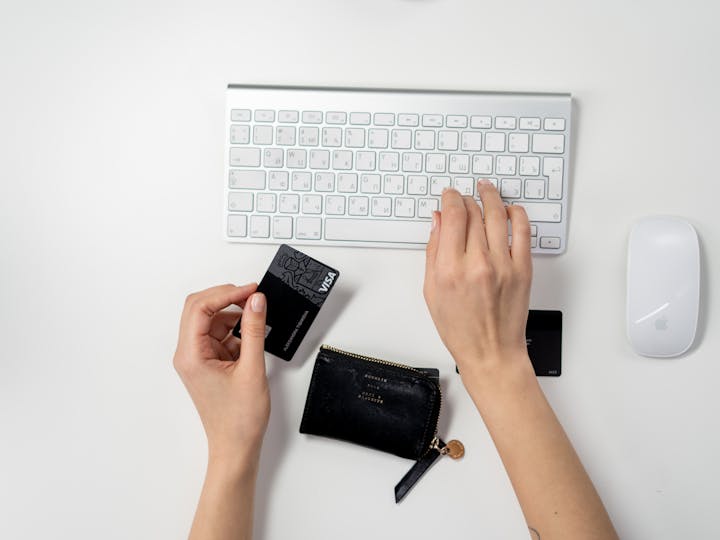Living the dream as a digital nomad? You’re working from beach cafés, hopping between countries, and enjoying the freedom of the open world. But while your Instagram might be on point, your bank account could be silently suffering. Yep, that globe-trotting lifestyle might be leaking money in places you haven’t even considered.
Let’s talk about the banking mistakes that are quietly draining your wallet. These aren’t dramatic missteps. They’re sneaky, small oversights that, over time, add up. But the good news? They’re totally fixable.
1. Sticking With Your Home Bank Only
We get it. You trust your local bank. It’s what you’ve always used. But if you’re swiping that domestic debit card abroad, you’re probably getting dinged with foreign transaction fees, ATM charges, and all sorts of little penalties.
Most traditional banks aren’t built for international living. Their systems assume you’ll use your card locally and occasionally make the odd overseas purchase. But living abroad full-time? That’s not what they’re optimized for.
Let’s do a quick math check. If your bank charges a 3% foreign transaction fee, every $1,000 you spend costs you an extra $30. That’s $360 a year if you spend $1,000 a month. Throw in ATM fees, and it climbs even higher.
You’re better off opening an account with an online bank or a financial platform that caters to global users. There are plenty of options that don’t charge foreign fees and even refund ATM costs. Why not keep more of your hard-earned money?
2. Waiting Too Long to Set Up Mobile-Friendly Banking
Here’s the thing: you don’t need a bank with branches. You need a bank that works when you’re in a hostel in Bali or on a shaky Wi-Fi connection in rural Portugal. Mobile functionality isn’t a luxury anymore. It’s essential.
Ever tried calling your bank to fix an issue with a locked card while 10 hours ahead of your home time zone? Not fun.
Many traditional banks still treat mobile banking as an afterthought. But newer, online-first banks are built differently. They prioritize real-time notifications, instant transfers, and intuitive interfaces that work globally. No phone calls. No waiting in line. Just tap, swipe, done.
So why wait? You can open a checking account online instantly with platforms designed for life on the move, no paperwork, no branches, just fast, flexible access wherever you are. It’s one of the easiest switches you can make to stop bleeding money abroad. You can manage everything from an app, wherever you are.
Even if you already have a bank, it’s worth comparing. Are you able to freeze your card remotely? Can you get virtual cards for added security? Can you deposit checks without being in the U.S.? These are the kinds of questions digital nomads need to ask.
3. Overlooking Currency Conversion Rates
Ever paid for something abroad and thought, “Wait, that seems high”? That’s probably your bank’s currency conversion rate doing its thing. It’s not always about what you pay, it’s about how you pay.
A lot of banks and payment platforms give you worse exchange rates than what you see on Google. That difference is called a markup, and it’s how they make a profit. Even a 2-3% difference on every transaction can rack up quickly.
The fix? Use cards or apps that offer interbank or mid-market rates. Tools like Wise or Revolut give you fair conversions, so you’re not constantly paying more just because you crossed a border.
Remember, every time you withdraw cash or swipe your card in a different currency, you’re at risk of losing money unless your setup is dialed in. Small percentages. Big impact.
4. Skipping Local Banking Solutions
Let’s say you’re posted up in Thailand for a few months. Life is good, the food is cheap, and your coworking space has hammocks. But you’re still paying rent in cash, transferring money internationally, or struggling to get paid locally.
Sound familiar?
Many nomads skip local banking options because they assume it’s a hassle or not worth the effort. But the truth is, having access to a local account or local payment method can save you time, money, and headaches.
Some digital banking services allow you to hold balances in multiple currencies and get paid like a local. Others even provide local account numbers so you can receive payments from clients or platforms in that region without getting hammered by conversion or international transfer fees.
Long story short? Look into the tools that make it easier to manage money in the country you’re in. It’s not just about saving cash. It’s about making your life smoother.
5. Not Paying Attention to Your Accounts
Let’s be honest. Checking your bank account probably isn’t your favorite thing to do. Especially when you’re on the beach or chasing waterfalls. But that passive approach can cost you.
Fraud, duplicate charges, mystery fees, these things happen, and they happen more often when you’re juggling different currencies, platforms, and time zones. If you’re not regularly monitoring your finances, these little errors can snowball into major issues.
Make it a habit. Once a week, set a reminder to review your balances and transactions. Use apps that give you alerts for large purchases or suspicious activity. Set up auto-categorization so you can spot weird spending quickly.
It’s not about obsessing over every dollar. It’s about being aware. When you’re aware, you’re in control. And when you’re in control, your money goes further.
Ready to Fix Your Finances?
Being a digital nomad means freedom, flexibility, and adventure. But it also means taking your finances seriously, because the stakes are higher when your income, location, and currency are always shifting.
Avoiding these five common banking mistakes is a great place to start. They might seem small, but they can make a massive difference in the long run. Fixing them means fewer headaches, more savings, and more money to spend on the things you actually care about.
So, take a moment. Audit your setup. Ask yourself: Am I really banking smart? If the answer is no, don’t stress, just make a change.
Your future self (and your wallet) will thank you.


